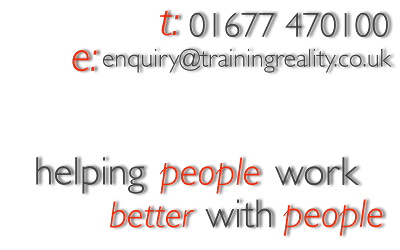Please press (at least!) one of these.
It costs you nothing, and (possibly) helps us spread the word!
Freedom, management and organisations
Tuesday, 23 February 2010
As an ex-politics student, and an instinctive libertarian, I’m constantly intrigued by the challenge of balancing genuine freedom with the (sometimes harsh) practicalities of the real world. How this freedom affects the successful operation of organisations and teams has now become a particularly interesting business challenge for me.
A wonderfully simple phrase that sums up the libertarian approach to freedom, and that accurately identifies the underlying principle, is this:
Your freedom to swing your fist ends at the end of my nose
To put this another way, the principle is that every individual should be allowed to do whatever they wish, up to the point at which it begins to have a direct effect on others. At that point, freedom ends.
This topic was discussed – and will continue to be discussed, I’m sure – in the context of equal opportunities legislation and the impact of non-discrimination against homosexuals in the Catholic Church. The extent to which the freedom of an individual can and should be allowed to affect the operation of an organisation is often fraught with challenge.
There are many aspects, from 'micro' to 'macro', that organisations need to be conscious of in order to get the right people on board, get the best out of them, and ensure that the fundamental operational aspects of the organisation are supported.
Team level
At the level of the team, freedom for individuals to operate in their own way, in their own style, is one of the core aspects of our management training here. Teams operate best when two, potentially conflicting, factors are in balance:
- Recognising, rewarding, appreciating and benefiting from everyone’s unique styles, capabilities, approaches and experience
- Ensuring that the team has a common goal and purpose, and that everyone is heading in the same direction
These factors are not necessarily in conflict all the time, but I believe that most people in most organisations will have experienced times when conflict of this nature occurs. How we deal with that conflict is the ultimate question, and will determine the success or otherwise of the team.
Department level
In addition to the points above, freedom at the departmental level presents additional challenges. A sales department may have conflicting "KPI’s" (not an expression I’m fond of – acronyms in general don’t do it for me), such as delivering against volume and value sales targets, market share, and in-store promotional presence.
Smart target setting can help, as well as structural constraints on behaviour, but there is more to it than that…
Organisational level
Scaling up still further to the organisational level, there are still further potential issues. The primary one is that it is relatively normal to have different departments in the same organisations with obviously conflicting targets, goals and objectives. Indeed, even within some departments, balances have to be struck between some "KPI’s" which, if not correctly set up, can be in obvious opposition to each other.
Sales teams targeted on sales unit volume; marketing teams measured on market share; finance teams rewarded for delivering gross profit growth; all often seen in the same organisation, and all often in conflict.
--
Going back to the original principle regarding freedom, within (particularly complex) organisations, the ability to allow individuals, teams, and departments their freedom to operate (which is a positive thing for most) whilst avoiding behaviour that undermines overall objectives can be a real challenge.
Having outlined the issues, the next two articles are going to (begin to) address them. As usual, I’d be delighted to get your thoughts too!
Please press (at least!) one of these.
It costs you nothing, and (possibly) helps us spread the word!



